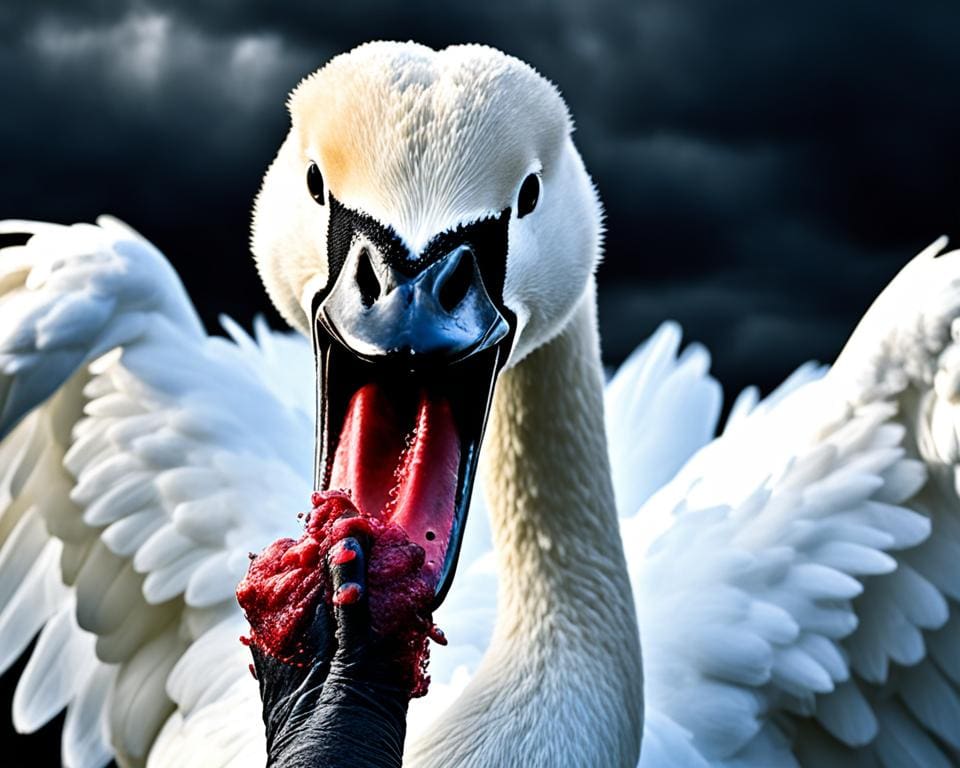Swans are one of nature’s most stunning creations, but their natural beauty belies potential dangers. When feeling threatened or provoked, these majestic birds can resort to biting, leading to significant health risks. Understanding the health risks of swan bites is crucial for anyone who interacts with these creatures, whether in the wild or in a controlled setting. Swan bites can transmit various diseases that may affect human health, prompting the question: what diseases can swans carry if they bite you? In this article, we will explore the dangers associated with swan interactions and how to protect yourself while enjoying these elegant animals.
Understanding Swan Bites and Associated Risks
Understanding swan behavior is essential for avoiding swan bites and recognizing swan bite risks. These magnificent creatures can exhibit aggression based on various factors. By identifying the common reasons for swan aggression, individuals can better navigate their interactions with these birds.
Common Reasons for Swan Aggression
Swans are known for their protective instincts. When they perceive threats to their territory or young, they can display aggressive behavior. The following factors are frequently associated with swan aggression:
- Nesting: Breeding season makes swans particularly territorial.
- Defending territory: Swans will chase away intruders from their established areas.
- Protecting cygnets: Parent swans will fiercely guard their young from perceived dangers.
Being aware of these common reasons for swan aggression can help individuals avoid unexpected encounters and potential swan bites.
Signs and Symptoms of Swan Bites
Recognizing the signs of swan bites is critical for ensuring personal safety. Swans communicate their discomfort through specific behaviors, including:
- Hissing: A loud hiss signals that a swan feels threatened.
- Head bobbing: This movement indicates agitation and readiness to defend.
If a person does experience swan bites, signs may include pain, swelling, and redness at the site of the bite. Early recognition of these symptoms allows prompt medical attention, mitigating any potential complications.

Was diseases can swans carry if they bite you
Swans, often seen gliding gracefully across waterways, can unexpectedly harbor diseases transmitted by swans. Understanding these zoonotic diseases from swans is crucial for anyone who interacts with them. Such awareness plays a vital role in ensuring safety and health while enjoying nature.
Overview of Zoonotic Diseases from Swans
Zoonotic diseases from swans represent a significant health concern. Avian influenza and Salmonella are among the most notable. Both of these diseases can swiftly transition from birds to humans, particularly through direct contact. Swans can become carriers of these pathogens, thus increasing the risk of transmission during encounters.
Specific Illnesses Linked to Swan Bites
In cases of swan bites, specific illnesses linked to swan bites often involve infections from bacteria entering the wound. Common infections might arise from pathogens such as E. coli or Streptococcus, which can lead to severe consequences if not addressed promptly. Those who sustain bites must seek medical advice to prevent complications.
Incidence of Swan-related Illnesses in Humans
The incidence of swan-related illnesses in humans can be surprisingly high in areas where humans frequently encounter these birds. Urban settings, where swans often congregate, present increased opportunities for interactions. Awareness and knowledge about the potential dangers can foster a more cautious approach, benefiting both humans and swans.
Preventing Swan Bite Incidents
To foster a safe outdoor experience while enjoying the beauty of swans, understanding effective strategies for preventing swan bites is crucial. Engaging with these majestic creatures requires a sense of respect and knowledge, allowing you to enjoy their presence while minimizing potential risks. By following established guidelines for safe interactions with swans, you can significantly lower the chances of confrontations that may lead to swan bite incidents.
Safe Interactions with Swans
One of the best practices in ensuring safe interactions with swans is to maintain a respectful distance. Observing them from afar not only allows you to enjoy their natural behavior but also protects you from possible aggression. Avoid feeding swans as this can encourage them to approach humans for food, increasing the likelihood of bites. Additionally, steering clear of nesting areas is essential, as swans can become particularly defensive when protecting their young.
Guidelines for Protecting Yourself
Understanding swan body language plays a pivotal role in preventing swan bites. Pay attention to signs of agitation, such as hissing or flapping wings. In cases where you find yourself too close to a swan, remain calm and slowly back away without making sudden movements. Empowering yourself with knowledge about swan behavior will enhance your overall experience in nature and keep you informed about how to navigate swan bite risks. Adopting these guidelines for protecting yourself ensures not only your safety but also the wellbeing of the swans you encounter.









